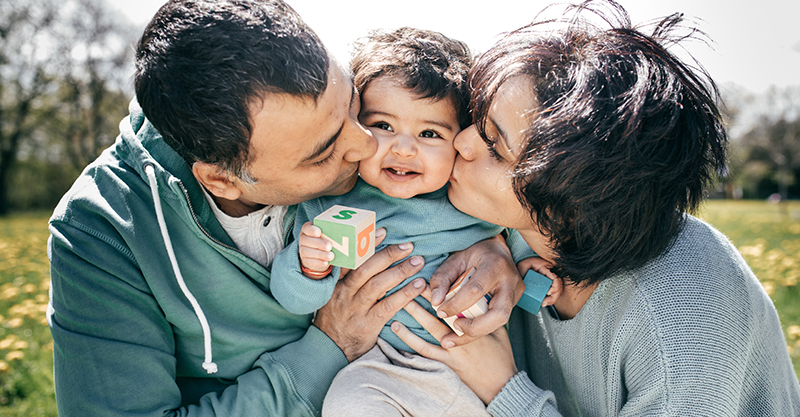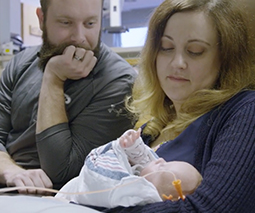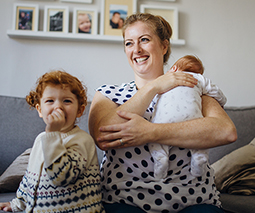What you need to know about trying to conceive in your forties

Over 40 and thinking about trying for a baby? You’re far from alone. Statistics indicate that more women in this age bracket are having babies than ever before.
Waiting for the right time can mean our thirties can come and go without babies getting a look in; whether you’ve been looking for the right person to settle down with, or waiting for your career to get to a certain level before you start your baby trail, or maybe you’re already a mum and you want to try one last time before your fertility dwindles away completely.
Of course it’s not always a conscious decision to wait. Fertility issues can make trying for a baby a long and exhausting battle for many women; which means that hitting the big 4-0 can leave you questioning whether it’s worth continuing to try.
Regardless of your reasons for wanting a baby once you hit 40, is it realistic to try? In short, the answer is a big YES. Although some medical risks increase for both mum and baby, many women aged 40 and over are having healthy pregnancies and babies; which means there’s a good chance you can too. But you need to be armed with the right information.
About your eggs
Here’s the low-down on those eggs of yours. You were born with all the eggs you’re ever going to have. These were of good quality during your twenties, giving you about a 30% chance of falling pregnant during each cycle at this age. As you got older your egg quality started to decline; meaning that your chances of falling pregnant each cycle also began to decrease. For a woman aged 35-39 this equates to about an 18% chance of falling pregnant, and once you hit 40 this drops again to a low of 5%. In other words, if you’re over forty and hoping to conceive, pregnancy is still a possibility for you … a small one, but a possibility nonetheless.
Fertility treatment
IVF has been linked with higher success rates than trying to conceive naturally, and may help to increase the chances of pregnancy success for you. However, some experts warn that the increased success rate from the age of 40 is minimal, and that this decreases to almost a zero rate from the age of 45. It’s not all bad news though, as overall, the rate of women falling pregnant over the age of 40 has been steadily increasing since the 1960s. In fact, recent statistics are suggesting that more women over the age of 40 are falling pregnant than their teenage counterparts.
What else can help?
As with any age, there are steps you can take to make sure your body is as prepared as possible for conception. Stopping smoking, keeping fit, cutting back on alcohol and ensuring your diet is adequate are all ways you can make sure your body is healthy and ready to conceive when the time is right. If you are 40 or over, and have been trying to fall pregnant with your partner for a few months without any luck, it’s probably worth checking in with your GP to find out more information.
What it’s like to become a mum in your forties
It might be a little harder for women to fall pregnant over the age of 40, but many women do so and go on to have perfectly normal pregnancies and healthy babies. Being an older mum also has its advantages. Women over the age of 40 are usually more financially secure, with many feeling accomplished in their careers. They are also said to possess more wisdom and maturity than younger mums, and to approach parenting in a more relaxed, joyful way as a result. A recent study has also suggested that older mums are less likely to yell at their children, and that their children were more likely to be emotionally healthy.
However, there are some health risks for you and your baby that do increase with maternal age; including miscarriage and chromosomal problems. Pre-eclampsia, gestational diabetes, early labour and problems with the placenta are all risks that tend to increase with age, so once you fall pregnant you will be closely monitored by your medical team.
If you’re 40 and wondering whether to try for a baby, feel positive about your chances. Yes, your fertility will have dropped and there are some health risks to keep in mind, but armed with the right information and supported by your partner and medical team, there’s every reason to go for it. Good luck!













